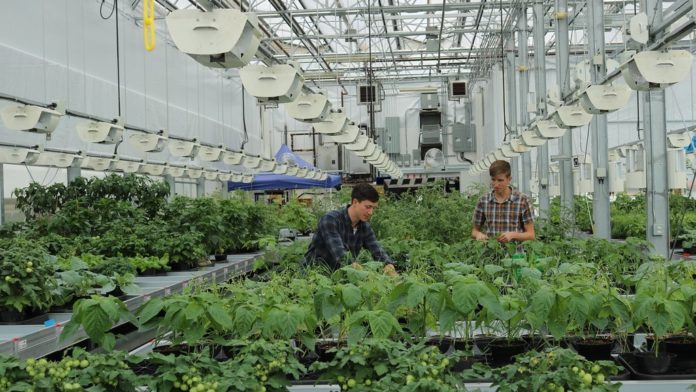As populations grow, there is an increasing need for a sustainable and reliable food supply that can feed everyone while addressing environmental concerns of modern day farming. New technologies that can boost crop yields while reducing our carbon footprint and protecting environmental health are under development.
With its natural alternatives to chemical pesticides and fertilizers, Vancouver-based Terramera is at the forefront of agricultural innovation.
Today, between 50-90% of farm chemicals like herbicides, pesticides, and fertilizers are washed away into the soil and water. Besides being inefficient, the accumulation of these substances can inadvertently damage soils, waterways, wildlife, and human health.
Herbicides used over many years lead to the growth of herbicide-resistant weeds. Many farmers are therefore stuck with either spraying more and more or using stronger herbicides, but both are ultimately losing strategies. Pesticides have also been linked to numerous health conditions like Parkinson’s and Alzheimer’s disease, birth defects, and reproductive disorders among others.
Chemical fertilizers are also contributing to soil acidification, which kills or stunts plant life along with many important players in a farm’s ecosystem, like insects, pollinators, and soil microorganisms.
As a sustainable alternative, Terramera created Actigate, which uses natural alternatives to chemical pesticides and fertilizers to increase crop yields. Actigate dramatically boosts the performance and uptake of the active ingredients used in crop protection products. Synthetic chemical loads can be reduced by at least 80%. Organic bio-pesticides also perform more efficiently, lowering costs, waste, and environmental damage while improving productivity and profitability for farmers.
This Global Cleantech Top 100 company aims to reduce synthetic chemical loads in agriculture by 80% worldwide while improving productivity by 20% come 2030.
“Canada has the opportunity to lead the world in regenerative agriculture, build Canadian innovation, technology and our economy and turn back the clock on climate change to set a new course for our planet,” said Karn Manhas, founder and CEO of Terramera, to BetaKit.
Global centre to fight climate change
Terramera’s environmental ambitions go far beyond Actigate. They’re also dedicated to driving technological innovation in agriculture to reduce its carbon footprint and make it more profitable.
Late last year, Terramera unveiled plans to create a $730 million global centre dedicated to fighting climate change through innovation in the agriculture sector. The centre will give farmers the tools they need to transition to “regenerative agriculture”, capturing carbon from the atmosphere and storing it in soil to improve its composition and increase crop yields.
This win-win strategy is gaining interest from the agricultural industry and policymakers. Advocates of “carbon farming” say it could transform agriculture from a major greenhouse emitter to a worldwide absorber, all while boosting food production.
By 2050, Terramera’s centre aims to help Canadian farms and ranches remove 78 gigatonnes of CO2 from the air and inject it into the soil while also creating 2.5 million jobs and generating $8.7 trillion for the economy.
The massive project has been outlined as a joint private-public venture. Terramera hopes to raise funding from private investors as well as federal and provincial governments. In the proposal, Microsoft will provide storage and computing services along with a data collection platform that integrates field data from sensors and drones among other sources. This will help Terramera to scale up their carbon sequestration efforts and monitor plant and soil health.
“The plan we’re developing creates a way for farmers to earn money from a full range of practices that are better for crops, plant health, and the environment,” Manhas said to BC Business.
“If Canada gets behind this proposal, we can generate millions of new jobs, generate trillions for the economy — that’s trillions with a T — and get Canada to net-zero [emissions].”








































